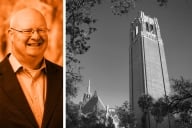You have /5 articles left.
Sign up for a free account or log in.
Clemson University officials took great umbrage at last week's assertion by a fellow administrator that they had rated "all programs other than Clemson below average" in the peer evaluations they filled out for U.S. News & World Report's annual rankings of colleges and universities, as part of a larger (successful) institutional strategy to send the South Carolina institution soaring up higher education's version of the Billboard charts.
On Monday, in response to reporters' requests for those peer assessment forms, Clemson released (in modified form, with the names of individual colleges excised) several recent peer evaluations submitted to U.S. News by the university's president and provost. The forms, a Clemson spokeswoman wrote in an e-mail accompanying the documents, show "that there was no collusion to tell people how to vote (their surveys are different -- until last week they had never talked about them), and that they do not rate everyone except Clemson below average."
That's true, and Clemson's provost, Dori Helms, rates 29 "national universities" as better than or equal to the "strong" mark (4 on a 5-point scale) she gave to Clemson in 2008.
But the university's president, James F. Barker, took a very different approach in his peer assessments. Barker, too, rated his institution as "strong" -- but he gave no other university in the country that high a mark, handing out 18 "good"s (3's), 94 "adequate"s (2's), 126 "marginal"s, and 21 "don't know"s in the 2009 ranking. Because U.S. News's "national universities" category includes not only well-regarded public institutions such as the Universities of California at Berkeley, Michigan, and North Carolina at Chapel Hill, but also private universities such as Harvard, Stanford, and Yale, Barker has rated his institution more highly than all of those.
In an interview Monday, he defended his approach. "The request from U.S. News is to measure the academic quality of undergraduate programs," Barker said. "It did not say research programs, it did not say prestige. It did not say size of endowments, or anything other than undergraduate education. And I took that charge seriously, measuring what I would think would be the full package of the undergraduate experience," including faculty-student ratio, relationships between faculty and students in and out of class ... do they spend time having lunch together.
"I believe that Clemson does that better than anyone," he said. "That's why my ranking for Clemson is where it is. You'll notice I did not give anyone a 5, because I did not believe any of us had reached that level.... I'm a hard grader."
Pressed on whether he truly believed Clemson affords its students a better undergraduate experience than do Princeton and the University of Virginia, Barker acknowledged that the question of colleges' "efficiency" has probably "crept into my thinking." In other words, he was asked, those institutions have a lot more money than Clemson and therefore have a natural advantage that his own personal rating system sought to account for in some way? "Other schools would bring a great deal to the table, and I was adding that component of fiscal discipline on top of the quality of what's going on," he said.
Barker said he was "absolutely not" trying to game its standing in the college rankings, -- as critics have alleged in the wake of last week's revelations about Clemson's aggressive approach to U.S. News. "There are hundreds of forms that are submitted each year, and one form doesn't move a school one way or the other," he said. "To use one form to game the system is impossible." (U.S. News in fact tosses out the highest and lowest peer ratings for each institution it ranks, to try to eliminate outliers, according to its officials.)
Asked if he regretted rating Clemson higher than 259 of its public and private university peers, Barker was unapologetic. "I think a university president needs to believe in what the school is doing. Clemson is my alma mater, but also my school. I would not deny that I have some bias, but what I'm doing there is my reflection on what's happening in undergraduate education."









